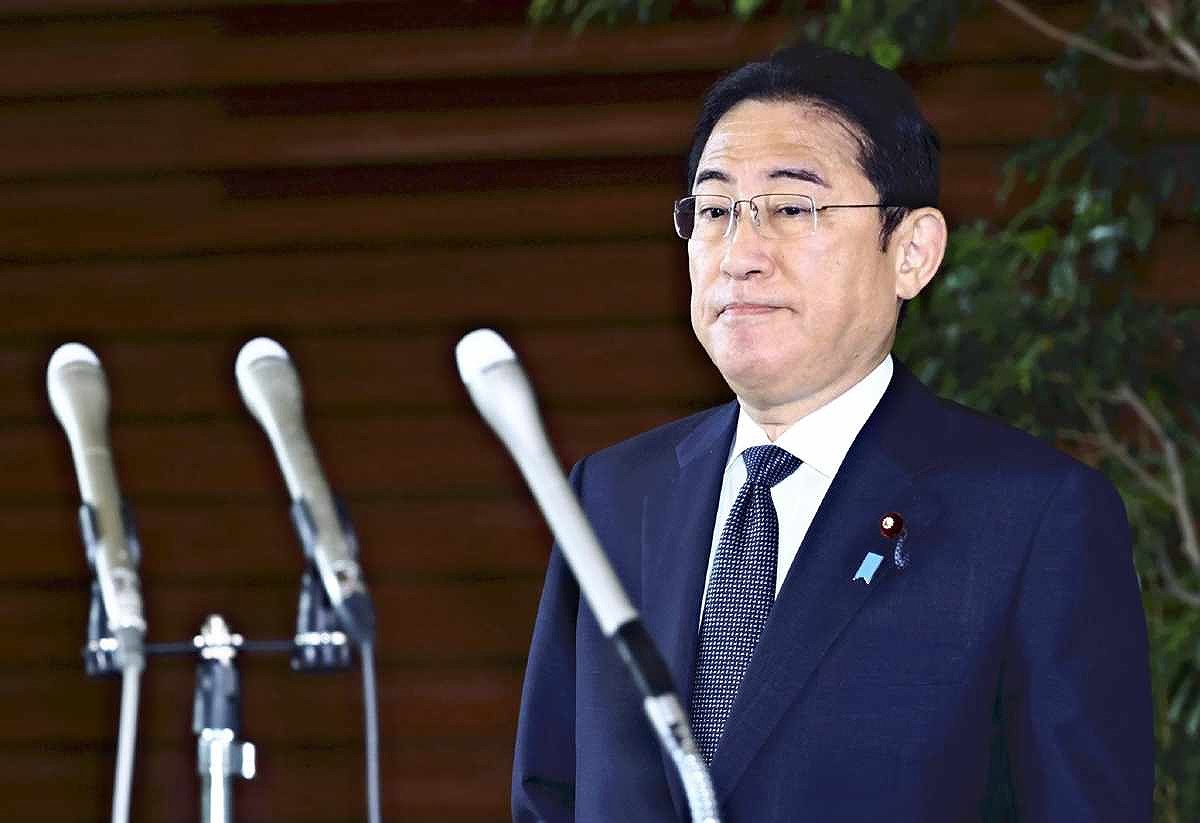Japan PM Kishida Leaves for U.S. to Attend NATO Summit in Washington; Will Also Travel to Germany for Meeting with Chancellor

Prime Minister Fumio Kishida
17:40 JST, July 10, 2024
Prime Minister Fumio Kishida left for the United States and Germany on Wednesday afternoon to attend a meeting of the North Atlantic Treaty Organization in Washington and to deepen security cooperation with Germany.
This will be the third year in a row in which Kishida has participated in a NATO summit, where he is expected to confirm that cooperation between the member states is growing stronger. He will also hold individual talks with South Korean President Yoon Suk Yeol and other leaders in Washington.
Chief Cabinet Secretary Yoshimasa Hayashi said at a press conference Tuesday that, through his attendance at the NATO summit, Kishida will “reaffirm the recognition that the security of the Euro-Atlantic region is indivisible from that of the Indo-Pacific and will strengthen Japan-NATO cooperation.”
Japan, South Korea, Australia and New Zealand — known as the Indo-Pacific Four (IP4) — have been invited to NATO summits every year since 2022, when Russia’s aggression against Ukraine started. On Thursday, Kishida will be present along with the heads of the other IP4 states and Ukrainian President Volodymyr Zelenskyy. Kishida will also deliver a speech on that day.
The first summit meeting among the IP4 and Ukraine is also scheduled to take place on the final day of the summit.
Kishida plans to meet separately with new British Prime Minister Keir Starmer, who took office Friday, and Prime Minister Ulf Kristersson of Sweden, which joined NATO in March.
Following the meetings in Washington, Kishida is set to visit Germany starting Friday, the first time in seven years that a Japanese prime minister has done so for reasons other than attending international conferences.
During their meeting, Kishida and German Chancellor Olaf Scholz are expected, with China in mind, to come to an agreement on establishing an intergovernmental consultation framework on economic security in order to counter “economic coercion,” measures such as trade restrictions which countries use to unfairly pressure others.
Top Articles in Politics
-

Japan PM Takaichi’s Cabinet Resigns en Masse
-

Sanae Takaichi Elected Prime Minister of Japan; Keeps All Cabinet Appointees from Previous Term
-

Japan’s Govt to Submit Road Map for Growth Strategy in March, PM Takaichi to Announce in Upcoming Policy Speech
-

LDP Wins Historic Landslide Victory
-

LDP Wins Landslide Victory, Secures Single-party Majority; Ruling Coalition with JIP Poised to Secure Over 300 seats (UPDATE 1)
JN ACCESS RANKING
-

Producer Behind Pop Group XG Arrested for Cocaine Possession
-

Japan PM Takaichi’s Cabinet Resigns en Masse
-

Man Infected with Measles Reportedly Dined at Restaurant in Tokyo Station
-

Israeli Ambassador to Japan Speaks about Japan’s Role in the Reconstruction of Gaza
-

Videos Plagiarized, Reposted with False Subtitles Claiming ‘Ryukyu Belongs to China’; Anti-China False Information Also Posted in Japan
























